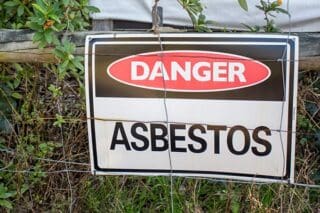
Mesothelioma is a rare cancer that develops in the thin lining of some tissues and organs. When faced with a diagnosis, patients often feel overwhelmed by new information. Many people know very little about mesothelioma before being diagnosed. For some, it’s the first time they have heard about it. Learning more about the disease can feel like a big task.
Finding simple and accurate mesothelioma information online can be challenging. Many pages are full of complex statistics and medical terminology. Because mesothelioma is rare, there are some common misconceptions about it, too. Keep reading to learn 5 main facts about mesothelioma.
1: Asbestos Exposure Is the Only Definitive Cause of Mesothelioma
Evidence shows mesothelioma is caused by asbestos exposure. Asbestos is a mineral that naturally forms in the ground. In the past, it was used in thousands of products. Installing, repairing or otherwise handling asbestos products can lead to exposure.
Breathing or swallowing asbestos fibers can cause serious conditions and illnesses. This includes mesothelioma and other asbestos cancers. By the 1980s, asbestos use began to decrease because of its serious health risks. But many older products still contain it and can cause exposure today.
2: Mesothelioma Can Take Decades to Develop
Mesothelioma has a long latency period (time between asbestos exposure and symptoms). In general, it takes anywhere from 10 to 50 years for mesothelioma symptoms to develop after asbestos exposure. Hearing about this delay can be understandably concerning.
You might know or suspect you were exposed to asbestos in the past. Even if you feel healthy now, you might worry since mesothelioma takes so long to show up. If so, you can share your asbestos exposure concerns with a doctor. They can help you watch for early disease symptoms. The doctor may also order tests to help catch asbestos illnesses as early as possible.
After a mesothelioma diagnosis, patients might worry about not knowing how or when their exposure occurred. But asbestos exposure details don’t affect prognosis or treatment options. Doctors don’t need this information to treat mesothelioma.
This information can be useful if a patient decides to take legal action. Asbestos lawyers can also help mesothelioma patients figure out which companies or products may be responsible for their exposure and illness.
3: There Are 4 Types of Mesothelioma
Mesothelioma has 4 types: pleural, peritoneal, pericardial and testicular. Each type develops in a different part of the body and has its own symptoms and recommended treatments.
A common misconception is that pleural mesothelioma is a type of lung cancer. Even though both occur in the chest, mesothelioma and lung cancer are not the same disease. Some of their causes, symptoms and recommended treatment options are different.
4: Treatments for Mesothelioma Are Advancing
Advances in mesothelioma treatments may offer hope for patients and their loved ones. Some advances have improved existing treatments, like chemotherapy and surgery. Researchers continue studying and developing promising new approaches, like immunotherapy and heated chemotherapy.
New treatment combinations may also be available through clinical trials. For many patients, trial participation has improved their quality of life and extended survival. Researchers hope these advances will lead them closer to a cure.
Oncology teams can provide more information about potentially helpful experimental treatments. Patients can discuss the possible risks and benefits of these therapies with their doctors.
5: Mesothelioma Patients May Have Legal Rights to Compensation
A mesothelioma diagnosis comes with emotional and financial costs. It can be upsetting to learn that companies continued using asbestos despite knowing its health risks. Many people were exposed and developed diseases because of these companies’ decisions about asbestos.
Anyone diagnosed with mesothelioma may have legal rights to compensation. This can help manage unexpected treatment costs and lost wages. Mesothelioma lawyers can coordinate the legal process from start to finish, making it as easy as possible for clients. This compensation can make a big difference for mesothelioma patients and their families.




